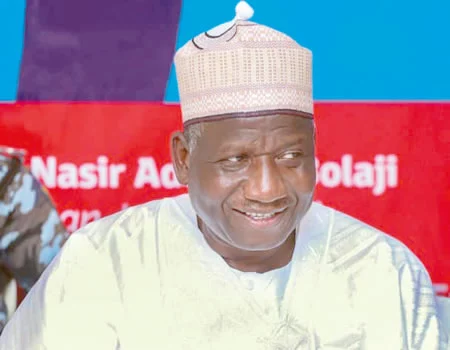National Chairman of the Advanced Democratic Party (ADP), Alhaji Yabagi Sani, has advocated stripping the president of the power to appoint the chairman of the Independent National Electoral Commission (INEC) and resident electoral commissioners.
In an interview with journalists on Sunday in Abuja, Sani also called for a reconsideration of the constitutional provision that allows the president to appoint the inspector-general of police.
He emphasised that the National Assembly should address these issues during the constitutional amendment process to ensure a stronger foundation for democracy in the country.
Sani argued that it is inappropriate for the constitution to assign such critical responsibilities to a president who is often involved in electoral contests.
He stated: “It is not beneficial for the president to appoint the INEC chairman and other key figures in the commission.”
Related Articles:
- 2027 Elections: Amaechi, Imoke lead talks on new opposition Party as coalition to unseat Tinubu gains momentum
- Sen. Sani declares Atiku, el-Rufai coalition against Tinubu’s re-election is dead on arrival
- ADA emerges Nigeria’s third force ahead of 2027: can coalition disrupt APC-PDP duopoly?
He further pointed out that the police, being the primary security agency in a democratic system, should not have their leadership appointed by the president, as they play essential roles in protecting citizens and facilitating elections.
Sani noted that the National Assembly recognizes that these aspects need to be prioritized for democracy to thrive in Nigeria.
He suggested that Nigeria should take inspiration from countries like the United States and Mexico, where police chiefs are typically elected rather than appointed.
He proposed a system where the National Judicial Council, civil society organizations, the media, and other non-political groups would oversee the appointments of leaders in these crucial agencies.
“If such appointees are selected through a process that does not involve the president, their loyalty would be to the people rather than to the president,” he explained.
Reflecting on President Bola Tinubu’s two years in office, Sani stated that assessing governance requires personal reflection.
He noted that governing a country is challenging, and from his perspective, Tinubu has performed well in maintaining national unity and relative peace despite ongoing challenges from bandits and terrorists.
However, he also mentioned that there are areas where Tinubu has yet to take necessary actions.
Sani acknowledged Tinubu’s long history as a democrat, highlighting his struggles for democracy and suggesting that he should lead by example.






